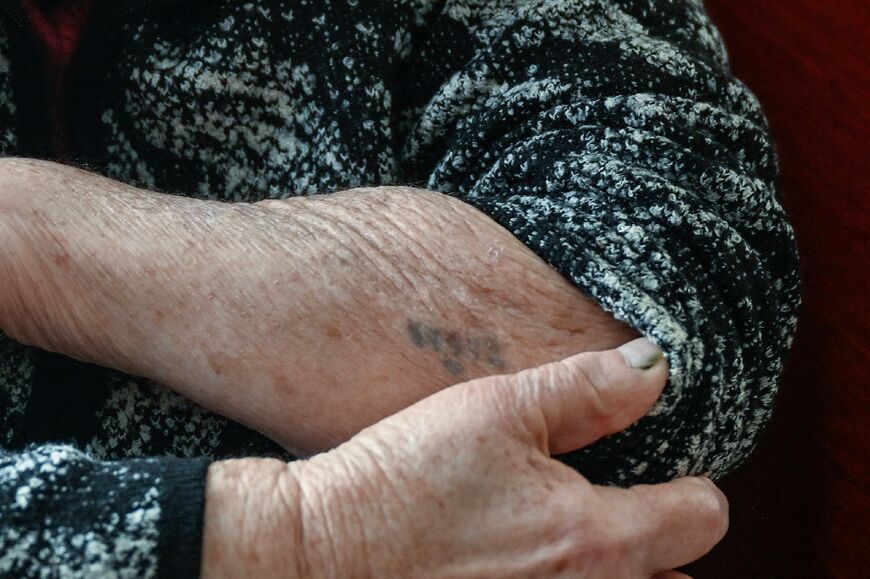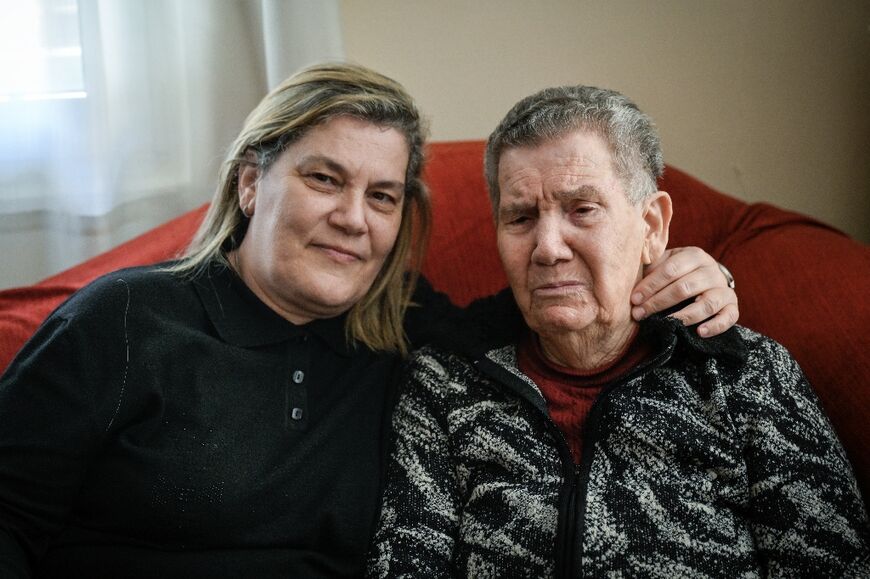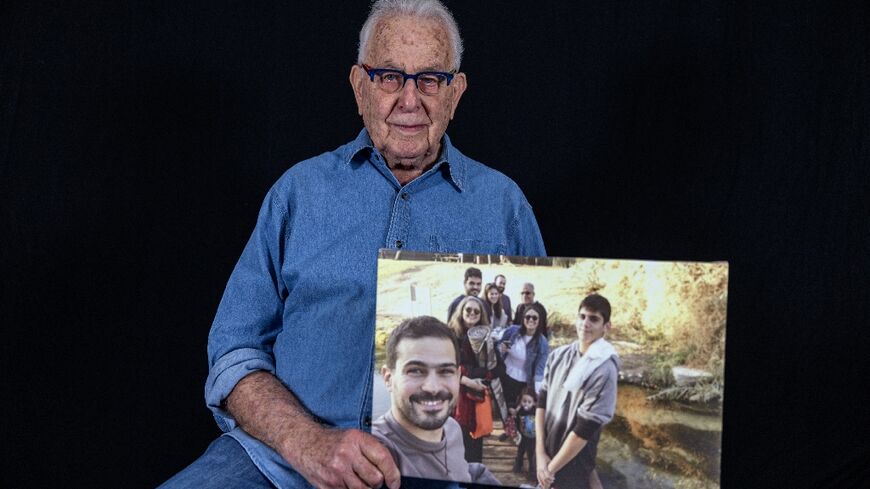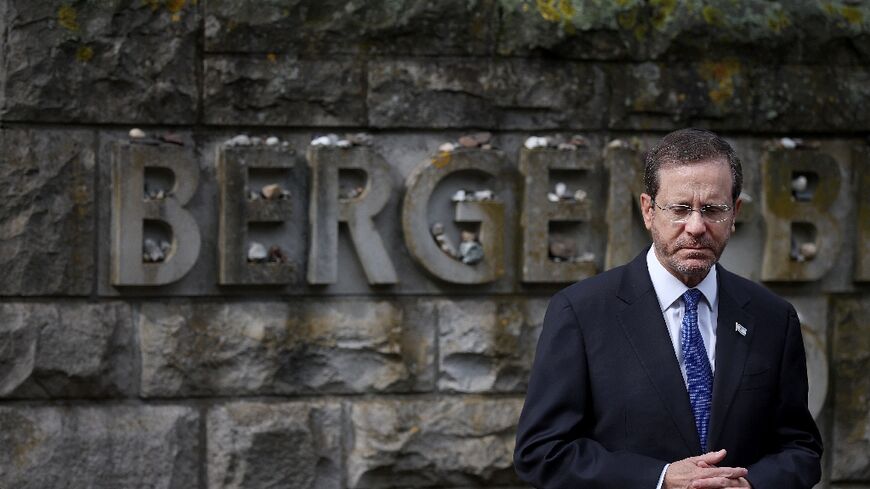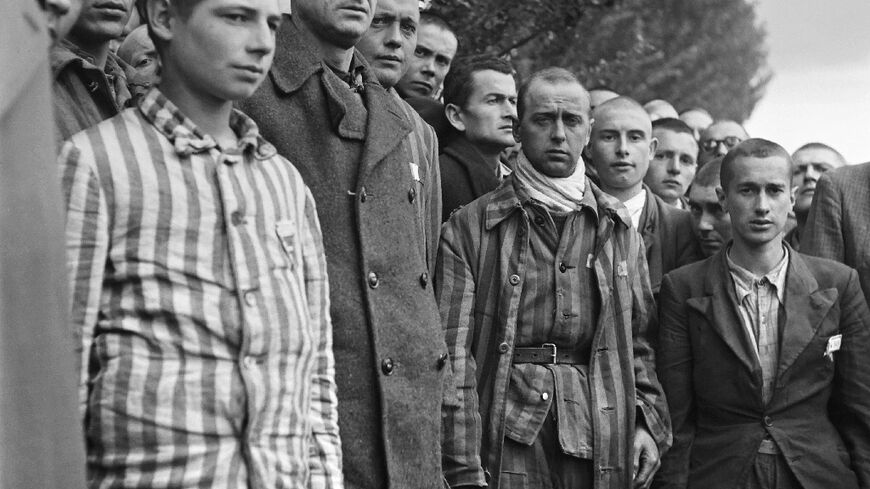Long ignored, Greek Holocaust survivors are finally heard

The pain wells up inside Naki Bega as she remembers being herded onto a train to Auschwitz-Birkenau, the Nazi's most notorious extermination camp.
They "threw us into (cattle) wagons with a very small window, no water, no food. About 13 days later we arrived in Birkenau," said the 95-year-old, one of Greece's last Holocaust survivors.
The country marks the 80th anniversary of the first deportations of thousands of Greek Jews to Auschwitz-Birkenau on Wednesday, a traumatic event that devastated a once-flourishing community whose roots go back to antiquity.
Fewer than a dozen Holocaust survivors are still alive in Greece, and their story is not widely known in a country which until recently glossed over the fate of its Jews who once dominated its second city, Thessaloniki.
The first convoy of Jewish deportees left the northern port -- once known as the "Jerusalem of the Balkans" -- for Auschwitz-Birkenau on March 15, 1943.
- Only one in 20 survived -
Less than one in 20 of Thessaloniki's 50,000 Jews survived the Holocaust, according to historian Mark Mazower, author of the acclaimed "Salonica, City of Ghosts".
Born Esther Matathias, Bega was deported at the age of 16 to the Nazi extermination camp in present-day Poland.
She was arrested on March 24, 1944 with her mother and two sisters near their home town of Trikala in central Greece.
On the selection ramp at Auschwitz, the teenager and her two older sisters were separated from their mother.
They never saw her again.
"We were taken to the shower, our hair was shaved, we were tattooed with a number," said Bega, rolling up the sleeve of her jacket.
The ink has faded, but her camp number is still visible: 77092.
Bega was sent to another part of the camp for forced labour.
"I would cut pieces of old cloth into strips" for the Nazis to clean their weapons, she said, sitting next to her daughter Myriam in her Athens apartment.
The guards regularly "ordered us to raise our arms in the air," she said, miming the gesture. "They wanted to check our bone structure. Those who were too thin were taken away" to their deaths in the gas chambers.
- Sky 'turned red' -
The camp's chimneys spewed out black smoke that she could see from her barracks.
"At night the sky turned red," she added. "In time we understood what was happening," said Bega, clutching a tissue to wipe back tears.
The decades have not dulled the pain. She paused, haunted by mental images only she can see.
Her daughter Myriam tried to bring her back to the present: "Mama, mama," she said tenderly.
Both of Bega's sisters died in the camp. One succumbed to pleurisy. The other was struck on the head by a soldier after being caught rummaging through potato peelings behind the camp kitchens for something to eat.
She later died of the injury.
The Nazis sent Bega to another concentration camp at Bergen-Belsen in Germany shortly before Auschwitz-Birkenau was liberated by the advancing Red Army in January 1945.
But with British forces approaching that camp in the spring of 1945, she was put on a 22-day "death march".
She was eventually freed in May 1945 with the final surrender of the Third Reich.
Bega made her way back to Greece in August 1945. Her father, who had escaped deportation, was still alive but died shortly afterwards.
She rebuilt her life in the city of Larissa, not far from the village of her childhood, marrying and having three children.
- Anti-Semitism -
In the aftermath of the war, few in Greece showed interest in the tragic fate of the country's Jews, most of whom decided to emigrate to Israel.
For decades, many mistook the number on her arm for a common tattoo.
A few years ago, Bega decided to return to her place of torment, accompanied by her daughter. She also gave lectures in Larissa schools on the Holocaust.
Greece has gradually begun honouring its Jewish community after formalising relations with Israel in 1990.
In Thessaloniki steps were taken a decade ago under the then reforming mayor Yiannis Boutaris to highlight the city's rich Jewish past.
But anti-Semitism remains rife, with Jewish cemeteries and Holocaust memorials regularly vandalised.
Among over 77,000 Jews living in Greece before World War II, more than 86 percent perished during the four-year occupation by Nazi Germany.
Today, the community numbers around five thousand, according to the Jewish Museum in Athens.
The Austrian-born SS officer who oversaw much of the deportation of Greek Jews, Anton Burger, managed to escape justice despite being sentenced to death in absentia.
He lived in Essen, Germany until his death in 1991, his true identity undiscovered during his lifetime.


